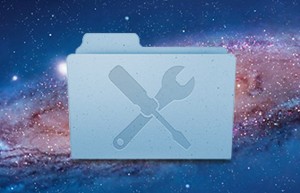 When you write a column, especially one as specialized as this one, you occasionally find yourself with a bunch of things you’d like to talk about, but no one thing that could actually be expanded into an entire column. That’s what happened this week.
When you write a column, especially one as specialized as this one, you occasionally find yourself with a bunch of things you’d like to talk about, but no one thing that could actually be expanded into an entire column. That’s what happened this week.
Early G3 Owners To Get OS X Refunds
Any good relationship — even one between a computer maker and the people who buy those computers — is built on trust. While I think Apple is heads and above many other large corporations when it comes to how it treats us, the fans (and there aren’t many other corporations that actually have fans) are still occasionally mistreated — and even lied to.
Up until just six months ago, my main machine was a Rev. II Bondi iMac. Although it was upgraded, Apple still didn’t support certain features on it in OS X, especially hardware-accelerated graphics. More than a year and a half ago, a class action lawsuit was brought against Apple for allegedly misleading buyers of the original G3′s by telling them that the new OS would be "fully optimized" for the chips.
It was reported this week that Apple has reached a settlement in the case.. The company is not admitting guilt, but will refund the $129 purchase price (with some conditions) to those affected. It’s hard to decide where to draw the line between supporting older machines and sacrificing them in the name of progress. I know this because I’ve been on both sides — with my Bondi and now with my G4. But if Apple tells us something and people make purchase decisions based on that information, then there is no excuse for not following through.
While it’s not everything the lawyers in the case were asking for (they also wanted, among other things, refunds for the cost of the actual G3 systems), the settlement is great news that I hope will enable us to put this unfortunate episode behind us.
Imitation Is The Sincerest Form Of
Will the pretenders never go away? I’ve written several times about the iTunes Music Store and about the copycats that have come along to take advantage of Apple’s trailblazing. Now Microsoft is in step right behind them. The software behemoth (I prefer this to the standard "software giant" that my other PC-using colleagues might use) will launch a subscription free music service in Europe, allegedly beating Apple to the punch.
I say allegedly because I wouldn’t exactly agree that Microsoft is beating Apple to anything. Microsoft’s venture may on the surface seem a bit like Apple’s, but the devil’s in the details, and I’ve yet to see our friends in Redmond, Wash., get those details right. I will be completely surprised and pledge to write a pro-PC column if they do this time.
There’s more to the iTunes Music Store than just its lack of a subscription fee, $.99 download fee and generous digital rights management scheme. It’s the entire experience that makes it special. I got the same feeling the day Apple rolled out the iTunes Music Stores as I did the first time I saw the Pasta Pro pot. You know, the one with the strainer built into the lid? I remember thinking: Why didn’t they do it that way in the first place?
I’ve never had a similar thought about anything Microsoft has done.
I Will Not Quit My Open Applications
Speaking of Microsoft, the company has released its first update to Virtual PC since purchasing its original developer, Connectix. I downloaded the updated and started up the installer program … and then quit it, leaving my copy of VPC completely untouched.
iDVD was crunching on a DVD movie file and I was sharing another musical creation of my own with a friend through file-sharing at the time, and I wasn’t about to do what the installer program was trying to require of me: Quit all running programs before installing.
I’ve since been told that the old installer used by Connectix did the same thing. But under OS X, it’s very rare that a piece of software should require us to shut everything down like that, and Microsoft has been notorious for doing it to us in the past. It wasn’t until the last and final update for Internet Explorer for Mac that that installer stopped asking us to do the same thing.
The OS is designed to keep going all of the time, and many of us are taking advantage of this in the way we use our computers, leaving our slower-than-the-G5 chips crunching processes in the background while we take care of day-to-day business. Unless you’re installing some sort of low-level system component, which Virtual PC does not, there is no reason to ask us to drop all of the electronic balls we are juggling.


No comments
Be the first one to leave a comment.